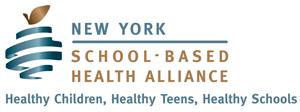Programs that increase access to epinephrine autoinjectors to treat anaphylaxis caused by food allergies, along with training in using them, need to be expanded, according to a review published in Annals of Allergy, Asthma & Immunology.
Expanding access and training would minimize the disparities in care experienced by underrepresented groups and by those who come from a lower socioeconomic background, Ellen W. Daily Stephen, MD, a first year allergy and immunology fellow in the department of internal medicine at Rush University Medical Center in Chicago, and colleagues wrote in the review.
For example, 17.5% of children in private schools in New York City had been diagnosed by a physician with a food allergy, compared with 7.4% of children in public schools, the researchers said.
To address the lack of access to personal epinephrine autoinjectors, the researchers called for the provision of open access to these devices, especially in school settings. They also suggested exploring options to reduce or eliminate the cost of epinephrine autoinjectors for low-income patients.
To continue reading CLICK HERE.
April 12, 2022
